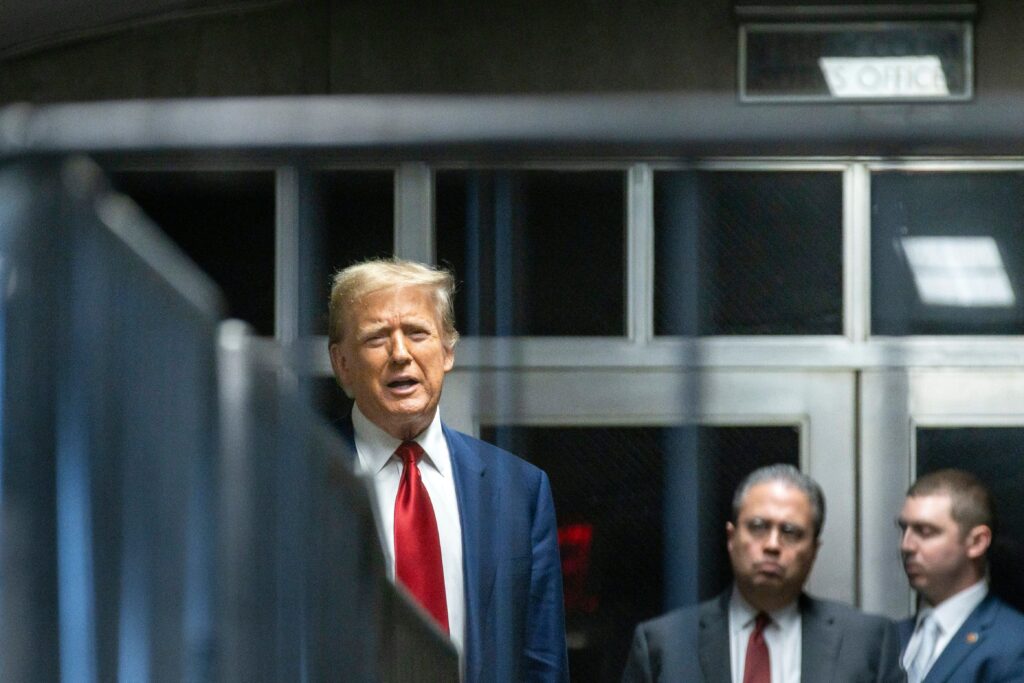- Trump's hush-money judge, Juan Merchan, on Tuesday issued a strongly-worded gag order.
- The order bans any statements about witnesses, court staff, or jurors.
- There is "sufficient risk to the administration of justice" to warrant a gag, Merchan wrote.
The Manhattan judge who will preside over the first criminal trial of Donald Trump issued a strongly-worded gag order on Tuesday barring the GOP frontrunner from making statements about witnesses, court staff, and jurors.
Trump brought the gag order on himself, the judge, New York Supreme Court Justice Juan Merchan, wrote. Merchan will preside over Trump's so-called hush-money trial, set to start jury selection on April 15.
"The uncontested record reflecting the Defendant's prior extrajudicial statements establishes a sufficient risk to the administration of justice," the judge wrote Tuesday.
Trump's public statements about the case have been "threatening, inflammatory, denigrating," the judge wrote.
Read Judge Merchan's gag order here.
The gag bars three kinds of "extrajudicial statements," meaning statements Trump makes outside of the courtroom.
He is barred from "making or directing others to make public statements about known or reasonably foreseeable witnesses concerning their potential participation in the investigation of or in this criminal proceeding," the judge ordered.
He is further barred from public statements about prosecutors, with the exception of Manhattan District Attorney Alvin Bragg, or court staff, or their family member, but only "if those statements are made with the intent to materially interfere with" their work on the case.
He is finally barrred from "making or directing others to make public statements about any prospective juror or any juror in this criminal proceeding."
Manhattan prosecutors have been asking for a gag order since mid-February, a request opposed by Trump's defense team, which argued that he as a presidential candidate, he should enjoy a First Amendment right to freely address the case against him.
"Tens of millions of Americans," Trump had argued, want to hear him respond to the case, which he calls an attack by political opponents.
Indeed, the judge wrote Tuesday, a defendant's right to free speech should only be abridged "to prevent outside influences, including extrajudicial speech, from disturbing the integrity of a trial."
But Trump's extrajudicial statements "went far beyond defending himself against 'attacks' by 'public figures,'" the judge wrote.
This is a breaking story; please check back for developments.
